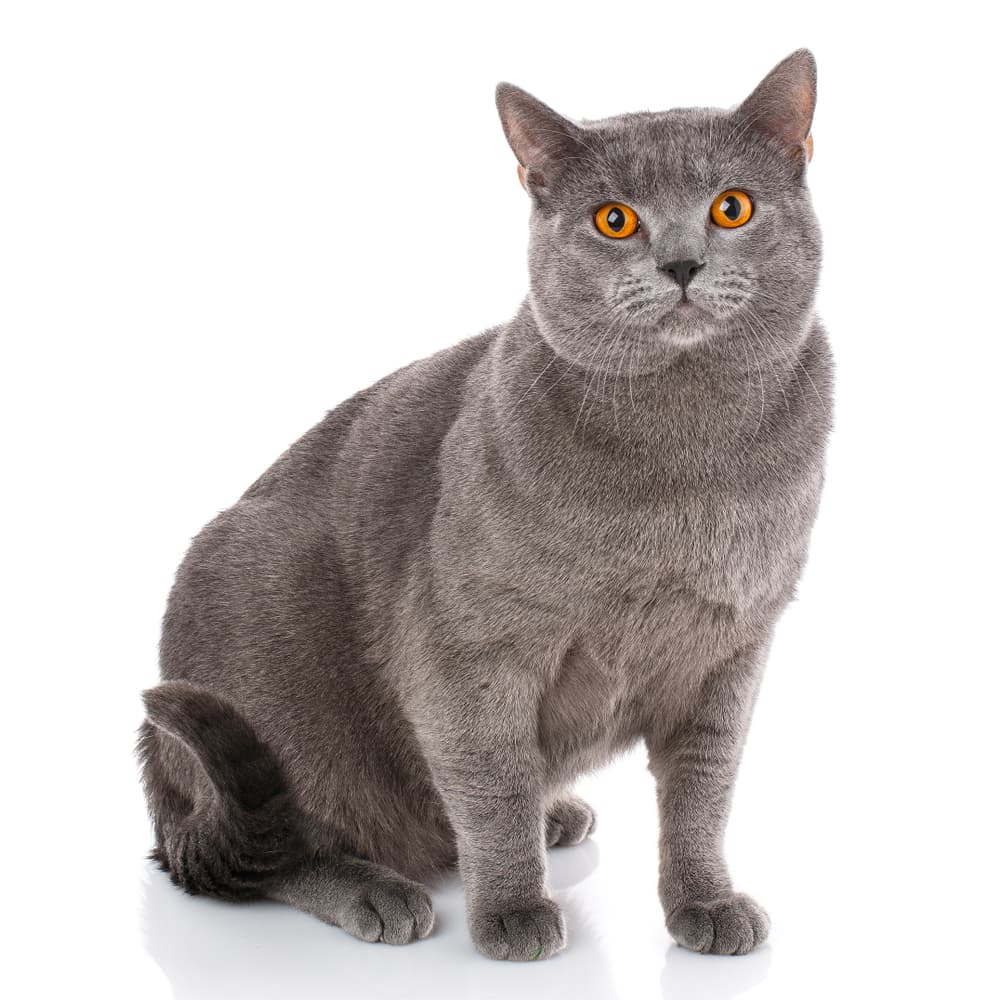Discover your cat's connection to this breed and 20 others


Discover your cat's connection to this breed and 20 others



The Chartreux is an easy-going cat who loves to love you. Their golden eyes shine beautifully against their silvery blue-grey coat, which covers their signature potato-shaped body that is well-muscled and supported by short, sturdy legs. This charismatic companion is sure to please with their playful, yet gentle demeanor.
The Cat Fanciers' Association (CFA) calles the Chartreux a "study in contrasts", as this feline offers a presence that elegant, yet sturdy and strong. Kittens are said to mature slowly, taking upwards of four years to grow in to mature adults, yet the change seems dramatic as if the adolescent changed almost overnight. The Chartreux are famous for their stunning "smiles" that beam from their round faces that frame copper golden eyes, features that only further complement their woolly yet elegant blue-grey coats.
The exact origin of this breed is a bit of a mystery. References to the Chartreux are said to have been found in 16th century French literature. Some say that these cats were companions to the Carthusian monks in their monasteries in the valley of Chartreuse in France. These cats may have also been brought by French monks to monasteries after traveling back from South Africa, but this was supposedly later in the 18th. After French feline fanciers took an interest in the Chartreux after World War I, and efforts to keep the breed going after its decline throughout World War II included out-crossing with British Shorthairs and Persians. Modern breeders from North America typically exchange cats with European breeders to avoid these out-crossed bloodlines, and a Chartreux breed standard was created in the early 20th century. Though Chartreux were imported into North America around 1970, the breed still remains more common throughout France and Europe than in the U.S.
The loyal Chartreux is said to make a wonderful family pet. They are highly affectionate yet not needy, striking a balance between entertaining themselves and engaging in play and cuddles with you. The Chartreux enjoys climbing to see the world from new heights and loves to learn new things, so don't hesitate to try out different interactive toys or puzzles with this curious kitty.
Though a generally health breed, the Chartreux can suffer from patellar luxation. This condition affects the kneecap and may result in limping or hopping to keep pressure off of the affected leg. Studies have reported incidences of polycystic kidney disease (PKD), one of the most common genetic diseases in cats, in the Chartreux. With their robust bodies, some Chartreux may be prone to obesity. The undercoat of their beautiful blue-grey woolly fur does shed several times per year, so daily combing helps keep shedding and tangles to a minimum.
The "Potato on Toothpicks" Cat. The Chartreux has earned this unique nickname as a result of their sturdy frame that is held by fine-boned legs.
A celebrated French feline. TICA shares that the Chartreux is the official mascot o fthe Montreaux Jazz Festival, and that the they are known as the national cat of France. Apparently, even General Charles de Gaulle had one of these fascinating kitties with the name "Gris Gris".
The International Cat Association (TICA) “Introduction to the Chartreux”
FETCH by WebMD "What to Know About A Chartreux Cats"
Volta A, Manfredi S, Gnudi G, Gelati A, Bertoni G. Polycystic kidney disease in a Chartreux cat. Journal of Feline Medicine and Surgery. 2010;12(2):138-140. doi:10.1016/j.jfms.2009.06.001
Recommended by top vets with decades of experience
21 breeds
64 genetic health markers
50 genetic trait markers
